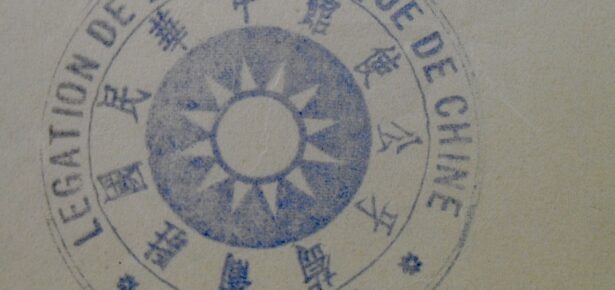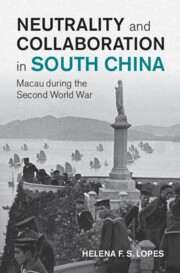
Histories of neutrality and collaboration in the Second World War tend to focus on Europe. Yet, considering these dynamics in Asia is essential to understand the conflict as a truly global event. My book Neutrality and Collaboration in South China: Macau during the Second World War looks at a small enclave that remained neutral throughout the war in East Asia, exploring how neutrality generated multiple and intersecting layers of collaboration and a range of international connections.
Like the 1942 Hollywood film Casablanca on the French-controlled North African city, Portuguese-administered Macau was a site of waiting, connections, danger, opportunity, and unlikely friendships.[1] The book covers a range of interactions involving Chinese Nationalists, Communists and collaborators with Japan, British and Japanese representatives, Portuguese officials, local intermediaries, and multinational communities of refugees. With a combined land area of merely 15 Km2, Macau’s population trebled during the war, reaching around half a million people. Refugees hailing from mainland China and Hong Kong profoundly shaped the wartime experience of Macau that, in turn, influenced its post-war future.
Although connected to other foreign-ruled territories in China, such as the British colony of Hong Kong or Shanghai’s foreign concessions, Macau ended up being the last remaining ‘lone island’ (gudao 孤島) of neutrality in China: a neutral colonial remnant surrounded by Japanese-occupied lands and waters and a base for many Chinese (and others) engaged in resistance and in collaboration. Macau was the site and the subject of a plethora of encounters and interactions between refugees, diplomats, spies, resistance activists, collaborators, colonial officials, businessmen, smugglers, and many others. It was a twilight zone between war and peace.
Despite notions of impartiality and inaction associated with neutrality, its practice in 1930s and 1940s Macau was marked by great ambivalence and constant links to wartime circumstances. Central to these were different cross-border circulations of people, goods, and information. Macau mattered precisely because of the connections it enabled between occupied and unoccupied areas in China and further afield. In turn, its local experience was also shaped by global connections to faraway places: from diplomatic conversations held in Lisbon, London or Paris to remittances and communications from relatives of refugees living in North and South America or Australia.
Drawing on many years of research in Asia, Europe, Australasia and the Americas with a range of different multilingual sources, this book explores the uses and abuses of neutrality in Macau, interweaving international, imperial, and social history. It sheds new light on Chinese wartime diplomacy with a small European power, on refugee histories, and on the plural practices of collaboration in a non-occupied territory. It also firmly places Macau – the first and last European colonial settlement in China – in histories of China’s foreign relations and imperialism in East Asia, fields from which it is often absent. The ambiguities of neutrality in Macau represented both an opportunity for those engaged in anti-imperialist resistance against Japan and a challenge to decolonisation in China, especially in the post-war period.
By reassessing the importance of Macau’s wartime connections to Hong Kong, the book also provides new insight into hitherto overlooked aspects of Allied resistance in South China.

[1] The title of this blog post borrows the epithet ‘East Asian Casablanca’ from Philip Snow’s description of Macau in his book The Fall of Hong Kong: Britain, China and the Japanese Occupation (New Haven and London: Yale University Press, 2003), p. 180.
Latest Comments
Have your say!